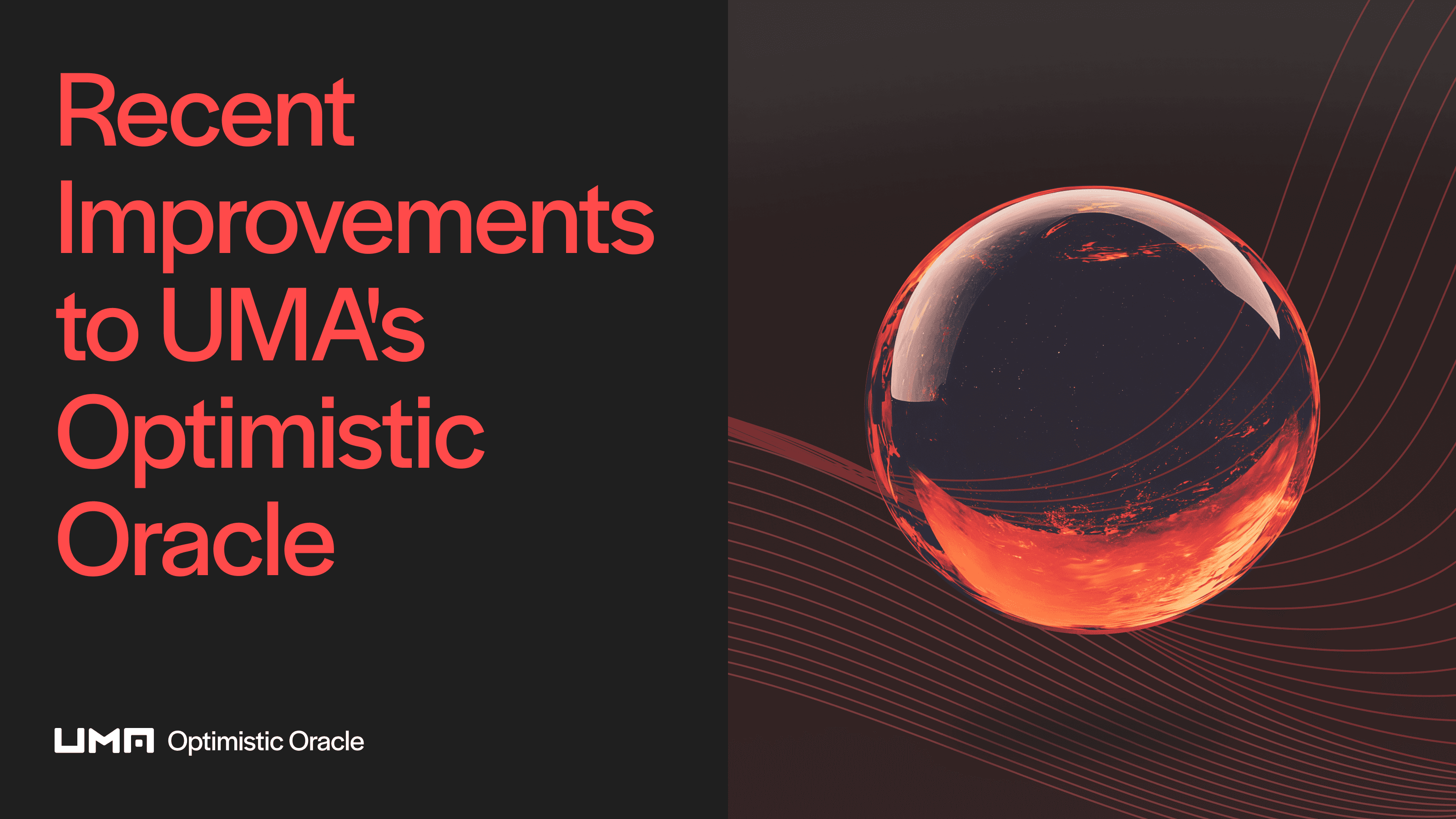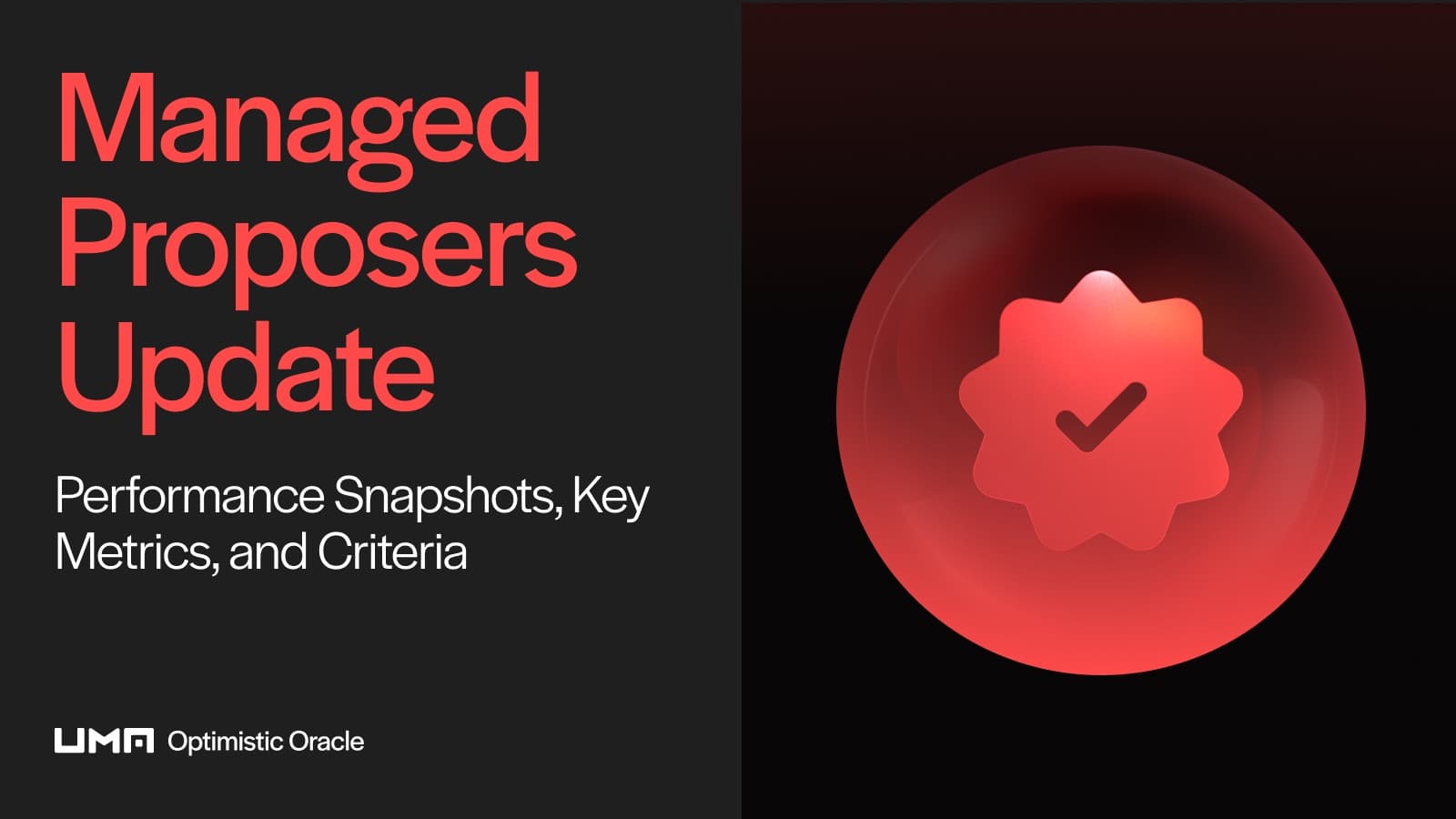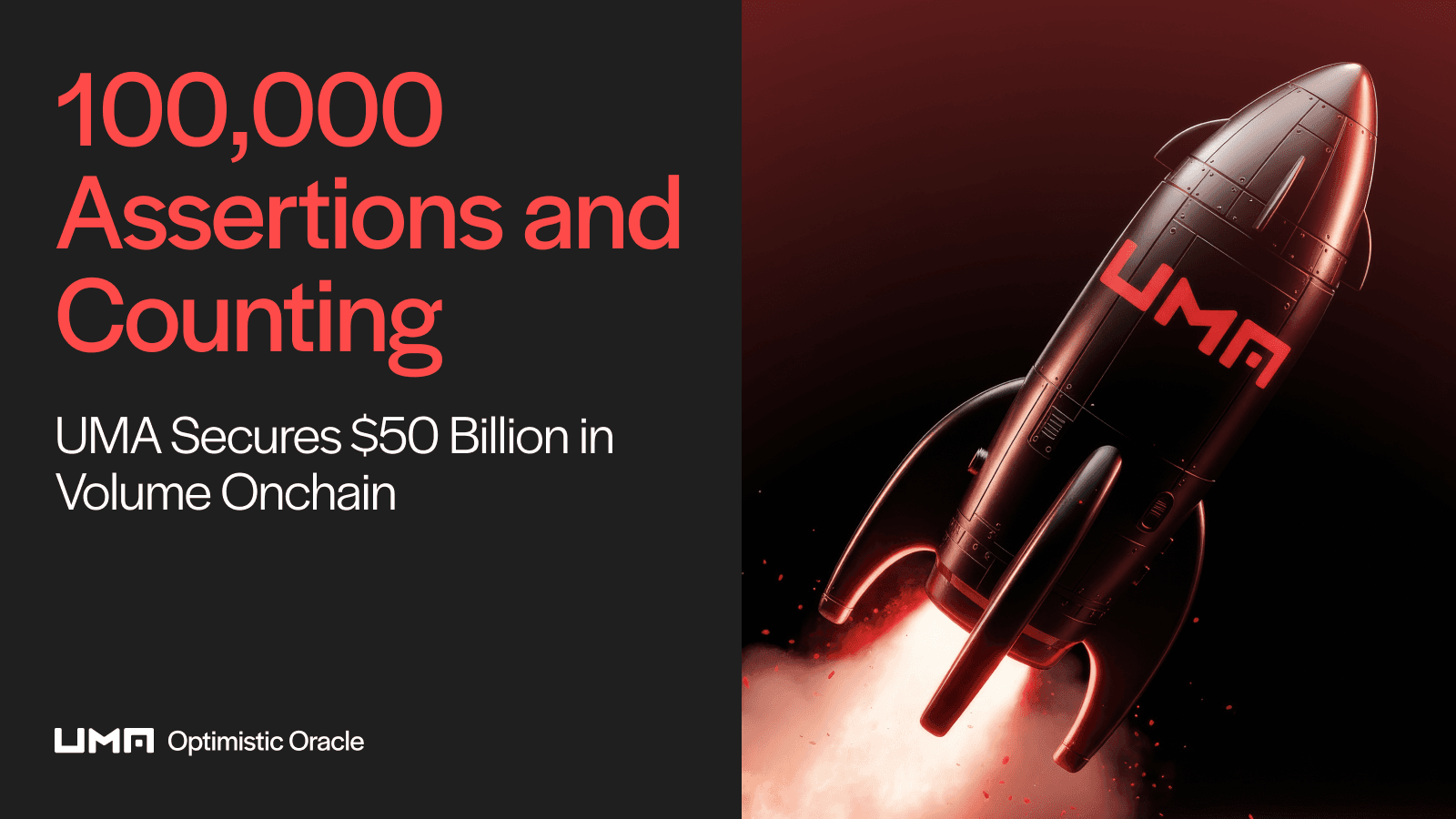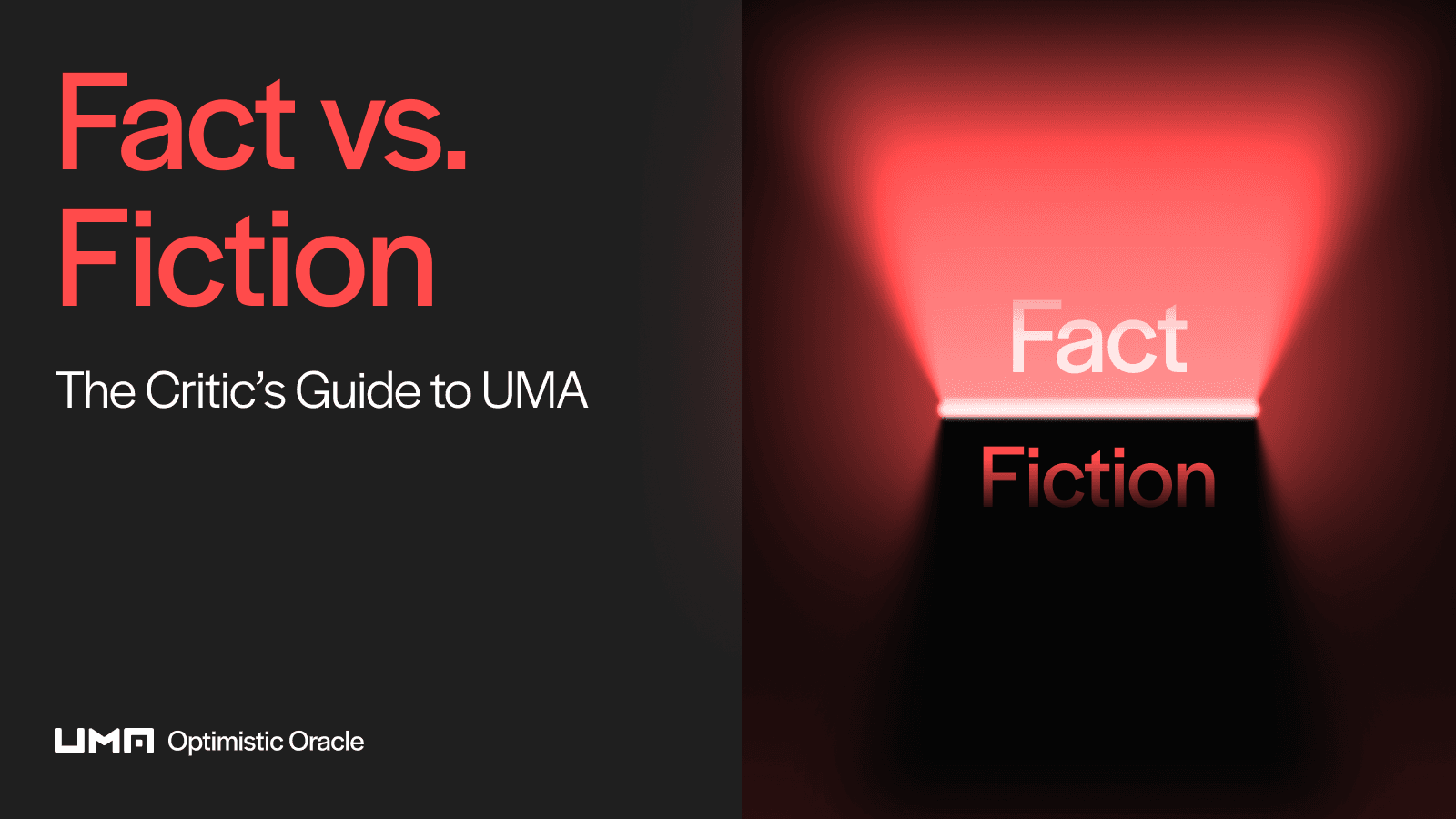Recent Improvements to UMA's Optimistic Oracle
Over the course of April, we focused on enhancing the voter experience and strengthening the integrity of our oracle system. This post outlines the recent improvements we've made
Understanding UMA’s Optimistic Oracle
UMA’s Optimistic Oracle (OO) operates on a simple, yet powerful principle: in most cases, truth will emerge through consensus; sometimes, it needs to be confirmed by a challenge and verification process.
In practice, this means that the vast majority of assertions made to the UMA oracle are optimistically accepted. In fact, 98% of all assertions in the OO are accepted without dispute.
When we look deeper at the 2% of disputed assertions, more than 80% of such disputes are about the timing; i.e, early proposals, more commonly referred to as P4, rather than disagreements about the veracity of the assertion.
This means that genuine content-accuracy-related disputes are extremely rare. In essence, only about 0.4% of all assertions face substantive challenges on their accuracy. In essence, UMA voters converge on the same answer for 99.6% of all prediction market requests that reach a DVM vote. This extraordinary level of consensus demonstrates the effectiveness of the UMA oracle in establishing truth onchain through decentralized verification.
Live Improvements in the Voter dApp
In our ongoing commitment to increasing the robustness of the UMA oracle, we’ve recently implemented several key improvements to the voter dApp. The goal is to ensure that voters always have sufficient context when voting.
1. Showing Polymarket Clarifications in the Voter dApp
We’ve updated the voter dApp to show Polymarket clarifications right within the dApp to ensure that all UMA voters have access to the same critical information before voting on disputes. This update provides the latest context on prediction markets, removes informational gaps, and eliminates ambiguity to help UMA voters make decisions based on the most current relevant details.
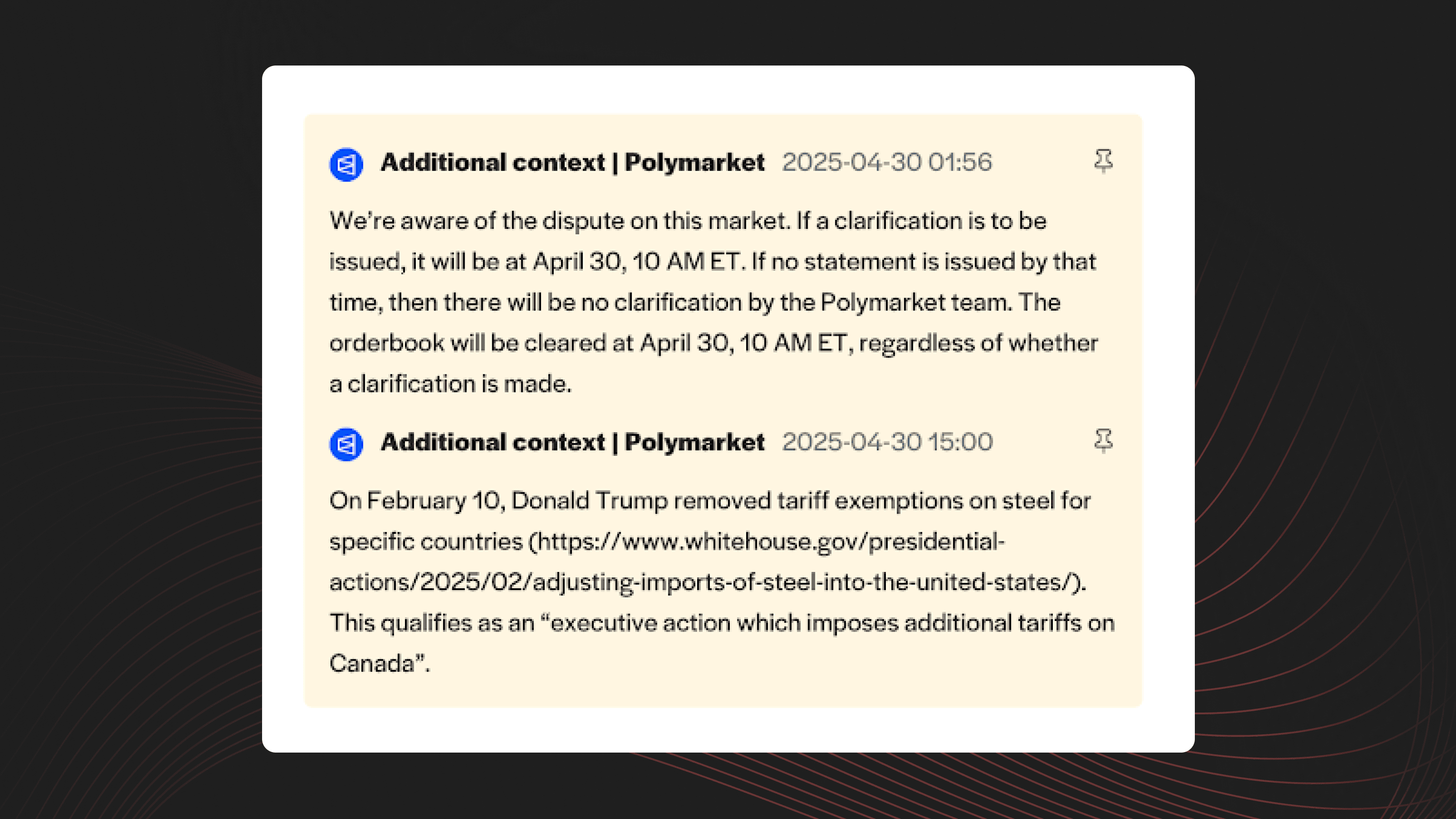
2. Increased the Settlement Price Approval Threshold (SPAT)
The Settlement Price Approval Threshold (SPAT) is basically the level of agreement needed among voters to resolve a dispute. Before now, the OO used to accept a simple majority (50%+), which meant disputes could be resolved, even on rare occasions when opinions were pretty divided.
We’ve now raised SPAT to 65% to strengthen the required consensus for vote outcomes. If we don't hit that threshold, the vote "rolls" to another round, giving everyone time to reconsider and discuss until there’s a stronger community agreement.
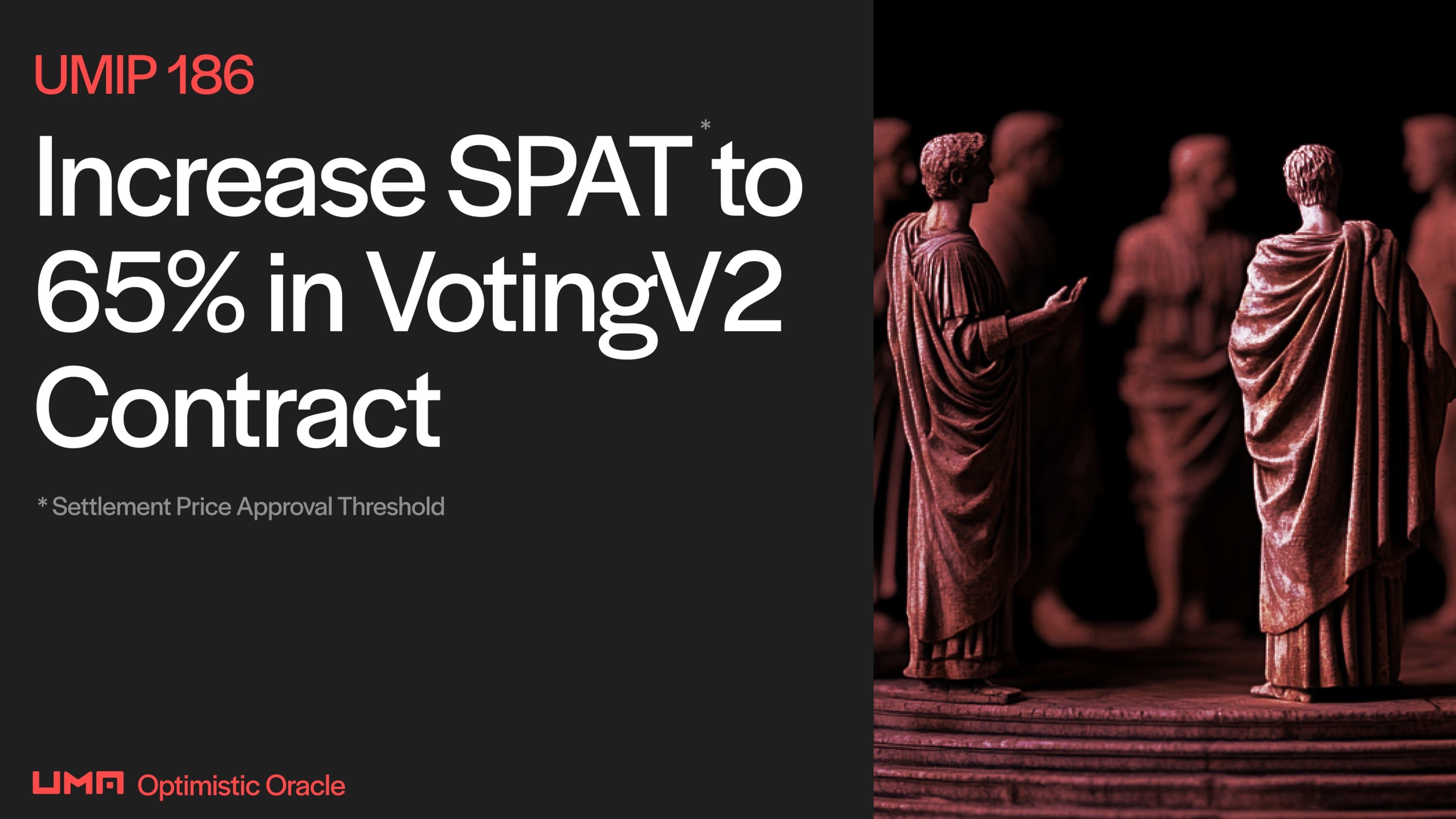
3. Enhanced Voter Information and Warnings
We've added clear warnings and guidance for voters within the dApp to help voters understand that they have a responsibility to verify claims independently. This includes clear warnings about not merely relying on comments from others to make decisions, and providing faster access to the Voter’s Guide to access and reference best practices quickly.
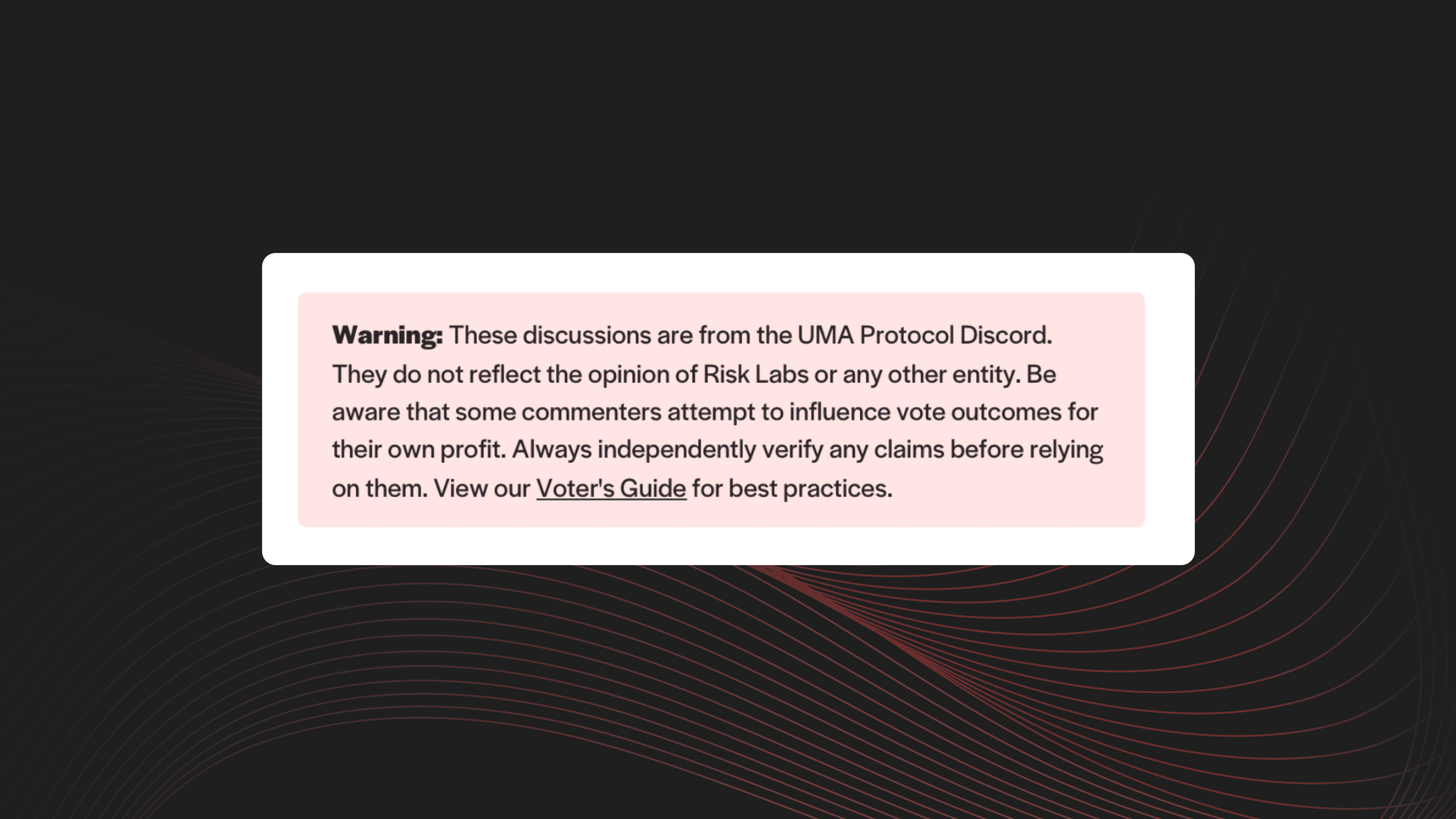
4. Improved Discussion Environment
We've updated how discussions are sorted in the voter dApp; instead of the initial chronological order where the earliest comments are seen first in the discussion pane, users can now sort from the most recent. This update reduces the outsized influence of early comments and creates a more balanced environment for all perspectives in the discussions to be considered.
5. Clear Guidelines for Market Clarifications
Working with our partners at Polymarket, we've established clear cut-off timelines for issuing clarifications, ensuring that important information is provided with sufficient time for voter consideration. This prevents confusion that can arise from late-stage clarifications that voters don't have adequate time to consider when making voting decisions.
6. Fixed PM Market Linking
We've resolved technical issues with links to Polymarket markets, ensuring voters can easily access the associated market information directly from the voter dApp. This provides crucial context about market odds and trading activity.
Looking Ahead
We are actively working on additional enhancements to strengthen the UMA oracle further. While we can't commit to specific timelines, these ongoing efforts include exploring ways to:
Further optimize the information available to voters
Enhance the dispute resolution process
Strengthen safeguards against potential manipulation
Improve the overall user experience for voters
Balancing Decentralization and Improvement
As we continue to enhance UMA’s Optimistic Oracle, we remain committed to two core principles:
Preserving Decentralization: UMA is a decentralized oracle, and we don't see it as the core team's role to dictate how people should vote or interpret rules. The power of the oracle lies in its permissionless, community-driven nature.
Constant Improvement: We care deeply about designing the best possible system and incentives to bring truth onchain. This means continually refining our tools, processes, and user experiences.
It's important to emphasize that disputes are an integral part of how the OO functions. When markets involve complex interpretations or edge cases, the dispute mechanism ensures that all perspectives are considered before reaching a final determination.
This is precisely how the system is designed to work. The occasional contentious dispute highlights that community members care deeply about accuracy and are actively engaged in maintaining the integrity of the oracle. Ultimately, when disputes are contentious, it often comes down to how people interpret the rules, and we are always striving to reduce ambiguity on all fronts.
With 98% of all assertions in the OO accepted without a dispute and 99.6% of disputed assertions resolving with a strong consensus, the UMA oracle proves that decentralized truth verification is reliable. This remarkably high accuracy rate demonstrates that while our system embraces disputes as part of the process, the final outcomes reflect that people reliably find the truth, collectively.
We invite all community members to join us in this journey of continuous improvement, as we build the most trusted foundation for bringing truth, by the people, onchain.
Have thoughts on these improvements or ideas for future enhancements?
Join the conversation in our Discord or follow us on Twitter.
